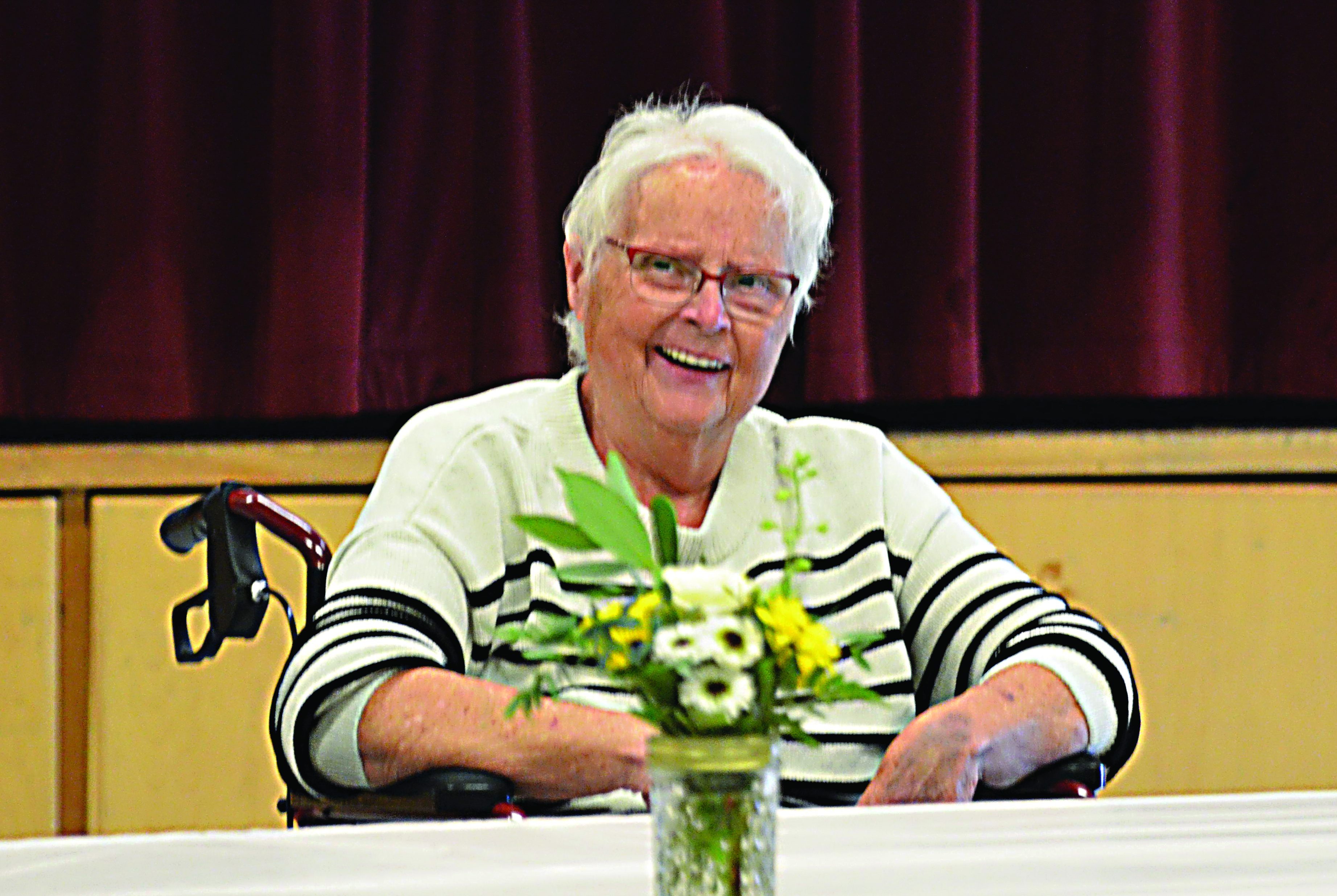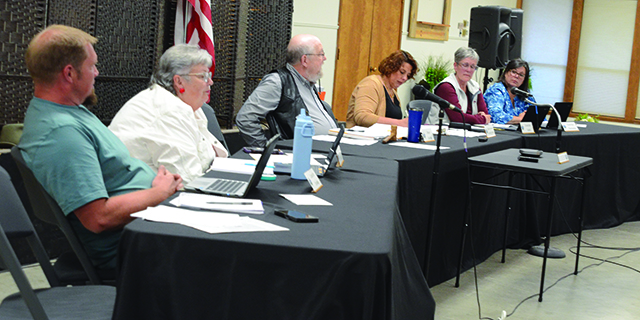Safe Harbors, DA see full range of domestic violence’s local impact
Published 4:00 pm Tuesday, January 15, 2013

- <p>Safe Harbors' Executive Director Bobbi Duncan and Faith Advocate Dave Duncan agree that power and control, not alcohol, drugs, and anger are cornerstones of domestic violence.</p>
Felony trials for domestic violence pass through the Wallowa County Courthouse far more often than commonly is known.
And cases that enter the courtroom constitute the tip of the iceberg for relationships where willful intimidation, physical assault, battery, sexual assault, and/or abusive behavior are the norm, pitting one intimate partner against the other.
Wallowa County District Attorney Mona Williams says volumes of such abusive behavior goes unreported here and, even when it is reported, anywhere between 50 to 70 percent of domestic violence charges are dropped before moving forward in the legal process.
Bobbi Duncan, executive director of Safe Harbors, says 123 previously unseen clients utilized services of that independent nonprofit agency during 2012, receiving 450 shelter nights of care.
Safe Harbors launched in 1994 in the basement of the Wallowa County Courthouse with a budget of $12.
Duncan, in her eighth year as executive director, says the raw number of persons seeking refuge at Safe Harbors is increasing annually. Still, she suggests the possibility that such a rise in numbers could be attributed to the increasing familiarity the community has in Safe Harbors.
Williams, speaking in total agreement with Bobbi Duncan and Safe Harbors faith advocate Dave Duncan insists that domestic violence isnt caused by alcohol, drugs, or anger.
Its all about power and control, says the district attorney.
Warning signs of domestic violence include:
The victim is isolated from friends and family.
The abuser tracks movements of victim.
The abuser controls the money.
The perpetrator emotionally abuses the victim.
The compassion Williams exudes toward victims, about 95 percent of whom are female in Wallowa County, according to Bobbi Duncan, is high.
Williams understands the quandary battered spouses face when deciding what to do after making an initial plea for help. Theyve obviously loved the intimate person at one time; when children are involved theres always the fear of removing that spouse from the household; and, more often than not, the perpetrator is the primary moneymaker for the family.
Bobbi Duncan tosses out a telling statistic. She says the average woman removes herself seven times from a domestic violence situation before making the final move and leaving permanently.
Bobbi and Dave Duncan hand out literature that, among other things, tries to dispel popular myths surrounding domestic violence.
One spotlighted myth says the victim can always walk away from the relationship. This rarely is true. The abuser commonly knows the same people the victim knows, thus can track a victim if the victim tries to exit the relationship.
Too, statistics repeatedly document that no particular personality traits set victims apart from the norm of society. Its documented that the abuser is responsible for the abuse, not the victim.
Dave Duncan stresses the role Safe Harbors plays for its clients. Knowing those seeking help are victims, Dave Duncan says its critical as a first step to give the control back to them. What he means is that Safe Harbors will educate those seeking help about options, but not tell them what they should or shouldnt do.
For example, Dave Duncan tells how Safe Harbors which now employs five, has about 10 volunteers, and wants more volunteers deals with the common question of restraining orders.
In addition to explaining the legal scenario where a request for a restraining order could come before a judge and be imposed in less than 24 hours, Safe Harbors personnel share the reality of such orders.
The abuser could respect the law and leave you alone, or he or she could become upset and want to retaliate, Dave Duncan says.
First contacts to Safe Harbors often come from referral phone calls or from police departments.
And yet complaints that reach the desk of the district attorney arent rescinded because the victim decides not to press charges. That determination remains in the hands of the district attorney alone.
Williams, of course controlled in large degree by evidence and witnesses, says her determining factor for such decisions is whats best for the community and the person.
Deputy District Attorney Greg Baxter says four domestic violence factors can elevate a charge to a felony.
They are if the abuser has had a previous assault against the same person, if a minor is present at the time of the domestic violence, if the victim is pregnant, or if the abuser has three previous domestic violence convictions.
The Safe Harbors crisis line is 541-426-6565.





